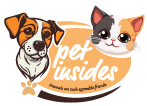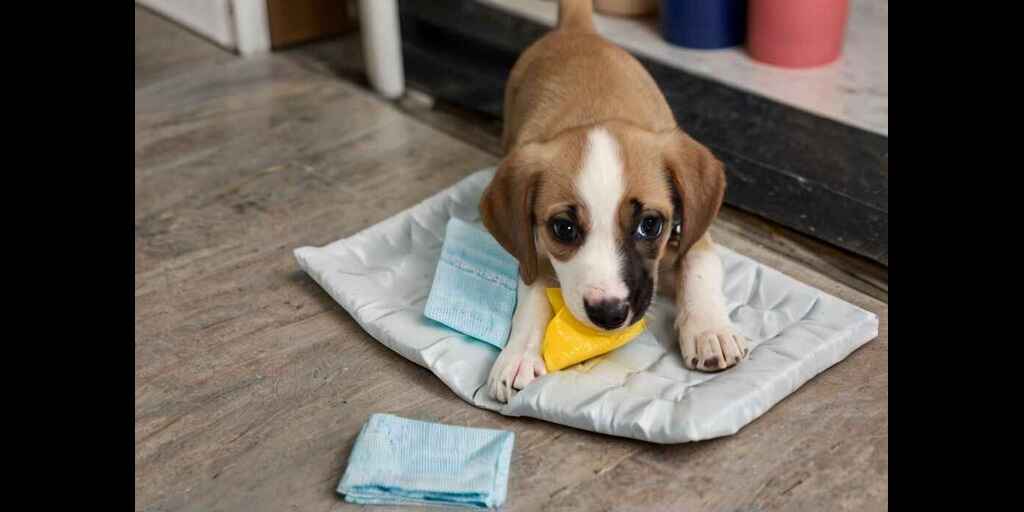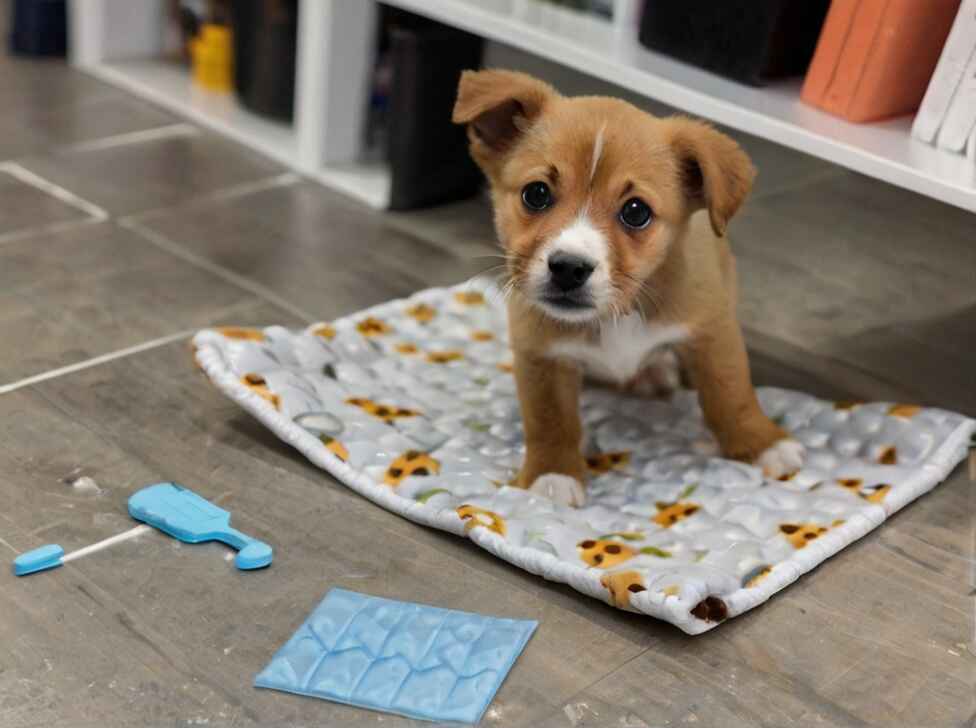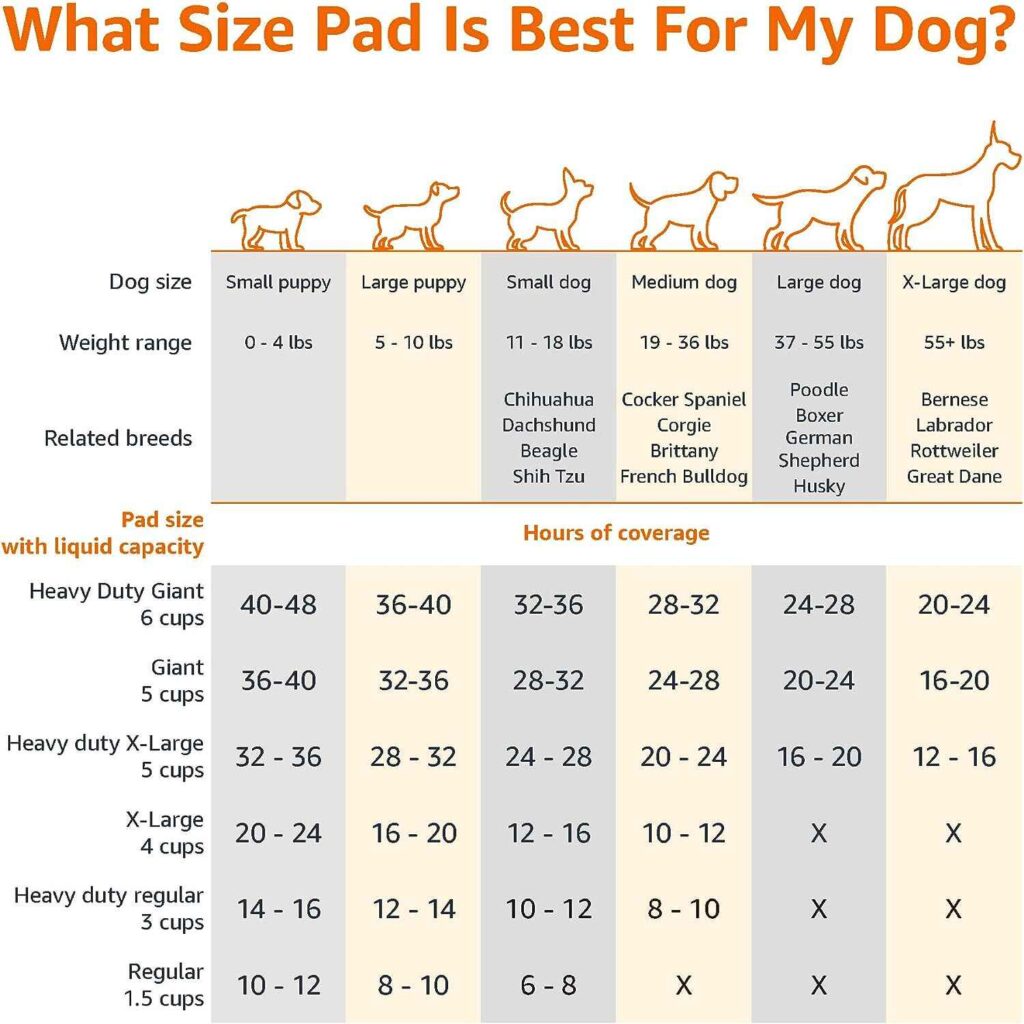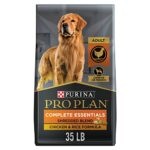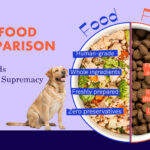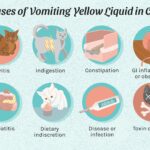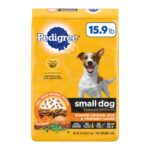Puppy eating pee pads can be a hazardous behavior. It poses risks of intestinal blockage and exposure to harmful chemicals.
Welcome to our discussion on the troubling habit some puppies develop: eating their pee pads. This behavior not only undermines the purpose of housebreaking but can also lead to serious health complications. Pee pads contain absorbent chemicals that are dangerous if ingested, potentially causing gastrointestinal obstruction, which may require surgical intervention.
As pet owners, understanding why puppies may engage in this behavior is crucial for preventing it. Common reasons include teething, curiosity, boredom, and the attraction to the scent of urine. It’s important to rectify this issue promptly by providing appropriate chew toys, consistent training, and supervision. Keep your furry friend safe and on track to healthy development by tackling pee pad consumption head-on.
Puppy’s Pee Pad Predicament
Imagine a cute, fluffy puppy in your home, learning the ropes of being house-trained.
You have set up pee pads, expecting little accidents, but an unexpected behavior emerges.
Your furry friend starts chewing and eating the pee pad.
It is cute yet concerning, so let’s dive into the heart of this predicament and uncover what it means for your puppy’s health and well-being.
Recognizing The Issue
Knowing when your puppy has a pee pad-eating problem is crucial.
Look for chewed up remains or your pup’s sudden disinterest in food.
You might notice pieces of the pad strewn around or missing altogether.
Staying vigilant helps in nipping this behavior in the bud.
Potential Health Risks
Eating non-food items is not only odd but risky.
Pee pads soaked with urine carry bacteria and chemicals.
If ingested, these can lead to:
- Intestinal blockage, which is a severe condition.
- Digestive tract injuries.
- Possible poisoning from the absorbing chemicals.
Watch for signs of distress in your pup such as vomiting, lethargy, or bloating.
These symptoms warrant an immediate trip to the veterinarian.
Remember, a puppy eating its pee pad is a call for help.
It requires attention, care, and sometimes, professional guidance.
Keep your puppy safe by resolving the pee pad predicament with love and awareness.
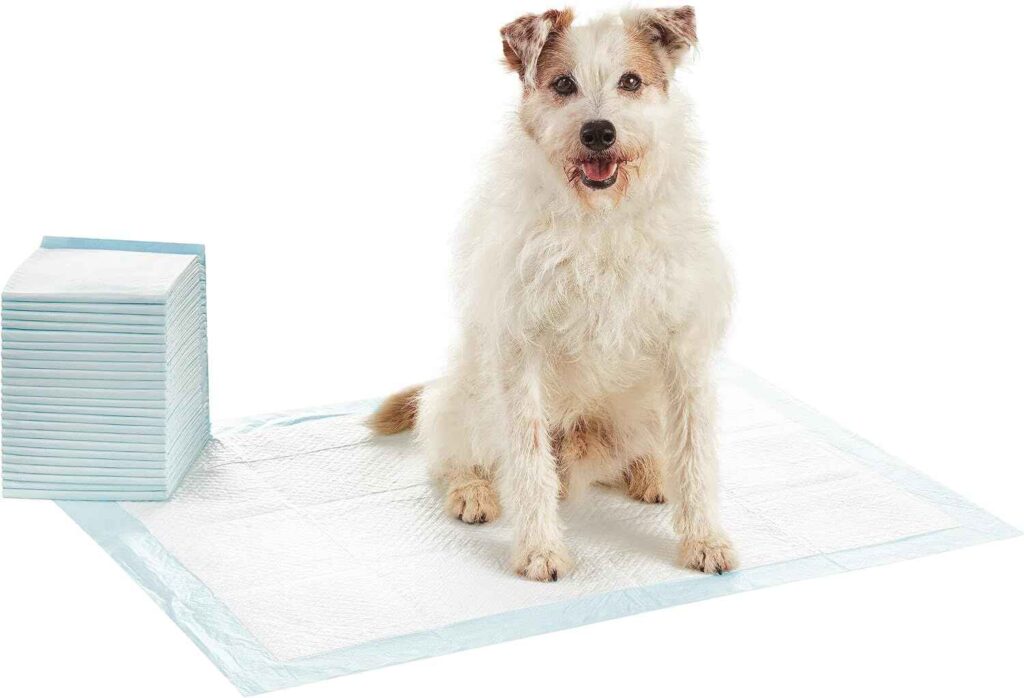
Why Puppies Chew On Pee Pads
Many new puppy owners get puzzled when their furry friend starts munching on pee pads. Understanding why can help prevent this behavior. Puppies may chew on pee pads for several reasons, from natural teething instincts to plain old fun. Here’s a deep dive into the mind of a puppy and the world of pee pads.
Teething Troubles
Puppies teethe just like human babies. This process can be uncomfortable. Chewing helps them relieve this discomfort. Pee pads are soft and chewable, which makes them a prime target for a teething puppy. To help, offer plenty of chew toys.
Boredom Vs. Play
- Puppies need playtime and stimulation.
- Without enough activity, they can get bored quickly.
- Bored puppies might turn to pee pads as a toys.
Keep your puppy engaged with interactive toys. Daily walks and play sessions can also reduce the chance of pee pads becoming a chew toy.
Exploring Through Taste
Puppies explore with their mouths. They might chew on a pee pad to discover more about their environment. Introduce different textures and flavors in toys to keep your puppy interested and away from pee pads.
Immediate Actions To Take
If you catch your puppy eating a pee pad, act fast. Quick intervention can prevent harmful effects. Follow the steps below to ensure your puppy’s safety and change this behavior.
Safe Removal Tactics
Act calmly to avoid distressing your puppy further. A stressed puppy may swallow larger pieces, which is dangerous.
- Approach your puppy gently to show you are not a threat.
- Offer a trade – give a safe chew toy in exchange for the pee pad.
- If pieces are in the mouth, remove them carefully.
- Watch for choking and be ready to call a vet if necessary.
Distractive Alternatives
Keep puppies engaged to correct the behavior. Boredom often leads to such mischief.
| Alternative | How It Helps |
|---|---|
| Chew Toys | They satisfy natural chewing instincts. |
| Puzzle Feeders | They entertain and promote mental stimulation. |
| Training Sessions | Engage their mind and reinforce good behavior. |
Educate your puppy with consistent training sessions. Reward good behavior promptly to reinforce it. Puppies learn best with positive feedback and patience.
Training Your Puppy
Training Your Puppy is a journey filled with challenges and milestones, like tackling the pesky habit of eating pee pads. Understanding the ‘why’ is crucial, but the ‘how’ to train your puppy is even more important. With the right strategies, patience, and consistency, guiding your furry friend away from their pee pad feast and towards better habits is achievable. Let’s delve into effective training methods.
Positive Reinforcement Essentials
Positive reinforcement is a powerful tool in shaping your puppy’s behavior. It involves rewarding good behavior, which increases the likelihood of that behavior being repeated. Rewards can be treats, praise, or playtime.
- Identify a high-value reward that motivates your puppy.
- Reward your puppy immediately after a desired behavior.
- Keep training sessions short, fun, and consistent.
Persistent Command Training
Persistent command training establishes clear communication between you and your puppy. By using consistent commands, you guide your puppy towards desired behaviours and away from undesired ones, such as eating a pee pad.
| Command | Action | Reward |
|---|---|---|
| Leave it | Puppy stops and moves away from the pee pad. | Giving a treat or verbal praise. |
| Drop it | Puppy releases the pee pad from its mouth. | Playing a quick game of tug or fetch. |
Remember to be patient and repeat commands gently but firmly. Avoid punishments as they can cause fear and confusion. Training takes time, so be persistent and your efforts will pay off.
Alternative Solutions
Finding the right solution for a puppy eating a pee pad can prevent potential hazards and promote healthy behavior. It’s crucial to redirect this undesirable habit through safe and engaging alternatives. The following sections outline methods to deter your puppy from munching on pee pads and guide them towards better activities.
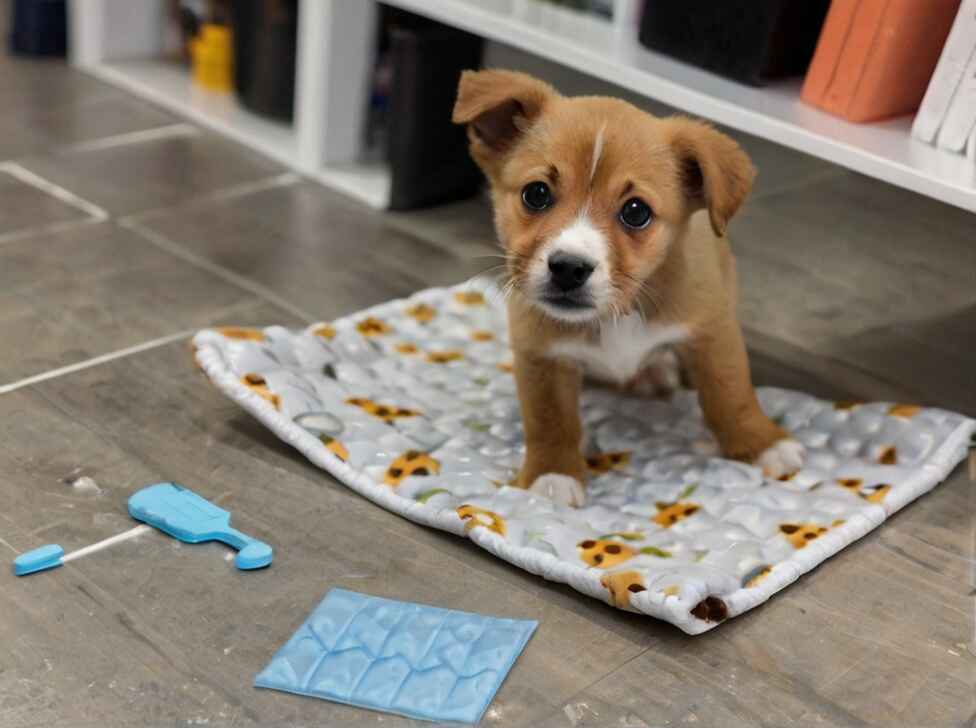
Chew Toys And Proper Teething Aids
Puppies often chew on pee pads during their teething phase. Chew toys and teething aids can be a saving grace. Choose items designed for soothing tender gums and lasting durability.
- Durable rubber toys
- Cooling chewing treats
- Interactive puzzle toys
Introduce these items to your puppy and watch them swap out the pee pad for a more appropriate chew challenge!
Puppy-proofing Your Home
To keep pee pads intact, puppy-proof your space. Secure areas where pee pads are accessible. Use gates or playpens to limit your puppy’s reach. Store household items, wires, and small objects away from curious mouths.
| Area | Actions |
|---|---|
| Living Room | Hide cables, remove plants, and block corners |
| Bedroom | Close laundry baskets and secure trash lids |
| Kitchen | Store cleaning products and use baby locks on cabinets |
Remember, consistency and patience build a safe environment for your puppy to learn and grow away from pee pads.
Credit: www.wizsmart.com
Understanding Puppy Behavior
Welcome to the fascinating world of puppy behavior, where every action and quirk can be a window into the mind of your furry friend. Puppies, much like human infants, go through a variety of stages in their development. One intriguing habit that may surprise new pet owners is when a puppy decides to chow down on its pee pad. While not the most pleasant discovery, it’s an opportunity to better understand how your puppy interacts with the world.
Stages Of Puppy Development
Puppies go through critical phases as they grow. Each stage marks milestones in their physical and mental development. Recognizing these can help explain certain behaviors.
| Age Range | Stage | Development Highlights |
|---|---|---|
| 0-3 Weeks | Neonatal | Dependent on the mother, primary senses developing |
| 3-8 Weeks | Socialization | Interacting with others, learning basic behaviors |
| 8-16 Weeks | Prime Socialization | Forming bonds, learning from experiences |
| 4-6 Months | Ranking Stage | Understanding hierarchy, testing limits |
| 6-12 Months | Adolescence | Increased independence, hormonal changes |
Curiosity And Its Consequences
Puppies are naturally curious creatures. This curiosity drives them to explore their environment using all their senses, including taste.
- Puppies nibble on objects to learn about their surroundings.
- Chewing helps in teething and provides comfort.
- Eating non-food items, like pee pads, can lead to health issues.
Understanding this behavior is crucial. It’s part of their learning process. But, pet parents must ensure that the puppy’s environment is safe. Remove potential dangers and provide suitable alternatives for chewing to protect your puppy’s health.
Interacting With Your Puppy
Young puppies are full of energy, and they show love in many ways. Sometimes they chew on things they shouldn’t, like pee pads. It’s essential to teach them the right behaviors early on. Through fun and regular interactions, puppies learn and grow. Here’s how to make sure that your puppy becomes a well-behaved and happy family member.
Regular Playtime Scheduling
Puppies need playtime like they need food and water. It’s crucial for their development. Making a schedule keeps their mind and body active. Here are some tips:
- Set specific times for play each day
- Keep sessions short but fun
- Vary the activities to hold their interest
Balancing Attention And Independence
While playtime is crucial, teaching your puppy to enjoy solo time is also important. Here’s how to create a healthy balance:
| Attention | Independence |
|---|---|
| Cuddle and play with your puppy often | Provide safe toys for solo entertainment |
| Teach commands and tricks together | Encourage self-play in a safe area |
| Share regular walks and explore together | Set up puzzle feeders for mental stimulation |
Preventative Measures
Preventative Measures are key when addressing the issue of a puppy eating its pee pad. While this behavior may seem frustrating, it’s a common challenge for many pet owners. By exploring alternatives and creating a suitable environment, you can deter this unwanted habit and help your puppy thrive.
Pee Pad Alternatives
Offering different solutions can redirect your puppy’s behavior. Here are some great options:
- Washable Pads: Reusable and eco-friendly, but they may taste less appealing to your pet.
- Grass Patches: Real or synthetic, they provide a more natural feel and dissuade chewing.
- Attractive Chew Toys: Keep those little teeth busy with toys that are safe and fun to chew.
Creating A Safe Environment
Setting up a no-chew zone can make all the difference. Adhere to these steps:
- Supervise: Watch your puppy closely to correct behaviors instantly.
- Restrict Access: Limit areas where your puppy can reach the pee pads.
- Bitter Sprays: Use safe, deterrent sprays on pee pads to discourage eating.
Consistent training complements these strategies. Reward good behavior to reinforce positive habits.
Dietary Considerations
When puppies snack on pee pads, it raises concerns about their diet and health. Understanding what our furry companions eat is vital. A well-balanced diet keeps them from munching on non-food items. Let’s delve into proper puppy nutrition and what foods to keep out of paw’s reach!
Assessing Puppy Nutrition
To ensure your puppy grows strong and healthy, assess their daily food intake. Good nutrition involves the right balance of protein, fats, and carbohydrates. Young dogs also need vitamins and minerals for development.
- Protein – Builds muscles and repairs tissues.
- Fats – Provides energy and supports cell function.
- Carbohydrates – Fuels daily activities.
- Vitamins and Minerals – Essential for bone growth and immune health.
Always choose high-quality puppy food that meets AAFCO guidelines.
Foods To Avoid
Puppies have sensitive tummies. Some human foods can be harmful to them.
| Food | Reason to Avoid |
|---|---|
| Chocolate | Contains theobromine, which is toxic to dogs. |
| Grapes & Raisins | Can cause kidney failure. |
| Onions & Garlic | May lead to anemia. |
| Xylitol (found in sugar-free gum) | Can trigger insulin release, leading to liver failure. |
Ensure your puppy can’t access these dangerous items. Prevent potential health issues by puppy-proofing your home and keeping a close eye on your pup’s activities.
When To Seek Professional Help
Furry companions might develop habits that concern pet parents. Eating a pee pad is one such puzzling behavior. It can pose serious health risks for your puppy. Knowing when to call in the experts is crucial. Two types of professionals can help: behavioral specialists and veterinarians. Both play different roles in ensuring the wellbeing of your pup.
Behavioral Specialist Intervention
Observing your puppy chowing down on a pee pad? Time to consider a behavioral specialist. This professional identifies the triggers and underlying causes for this behavior. They offer strategies tailored to your dog’s needs. Look for these signs your puppy needs behavioral intervention:
- Repeating the action, even after deterrents are in place
- Stress or anxiety shown by your dog in other ways
- Any changes in the household or routine that coincide with the behavior
Veterinary Evaluation And Advice
A vet rules out health issues linked to this unexpected behavior. They advise on safety measures to protect your pup. Reach out to your vet for:
| Signs | Action Needed |
|---|---|
| Vomiting or gagging | Immediate veterinary visit |
| Changes in stool | Discuss during regular check-up |
| Lack of appetite | Schedule an appointment |
Act promptly if you spot these signs. Your puppy’s health could be at stake. Reach out to a vet to understand the risks and get your furry friend back on track.
Maintaining A Chew-free Home
Raising a puppy brings joy, but unwanted behaviors like chewing pee pads pose challenges. Puppies explore the world with their mouths, yet teaching them what’s not a toy is crucial for a chew-free home. Smart strategies can keep your furry friend from nipping at things they shouldn’t, ensuring your home stays tidy and your puppy stays safe.
Monitoring Your Puppy
Constant supervision is key during early puppyhood. Watch their every move to prevent unwanted chewing. When you can’t supervise, safe confinement is necessary. Use a crate or a puppy-proofed area to limit access to chewable items. Include toys that keep them busy and satisfy their urge to gnaw.
- Keep floors clear of small objects that can tempt a puppy.
- Offer a variety of chew toys to divert attention from pee pads.
- Interrupt chewing attempts gently and redirect to appropriate toys.
Long-term Behavioral Strategies
Teaching good habits requires consistency and patience. Use positive reinforcement to encourage proper chewing habits. Puppies respond well to rewards when they chew the right items. Chew-proof your home, and keep pee pads out of reach.
| Strategy | Description | Benefit |
|---|---|---|
| Obedience Training | Enroll in classes for basic commands. | Builds discipline and strong bonds. |
| Provide Alternatives | Offer a mix of toys and chews. | Reduces boredom and unwanted chewing. |
| Taste Deterrents | Apply safe sprays to discourage nibbling on non-toys. | Creates a negative association with chewing pads. |
Firm “No” commands help when you catch your pup in the act. Do not scold after the fact—they won’t understand. Keep chewable items like shoes, socks, and pee pads out of reach. Close doors to limit access to certain rooms if necessary. High-value treats can be a strong motivator to leave pee pads alone. Rotate toys to prevent boredom and the return of bad habits. Invest time in your puppy’s training and you’ll be rewarded with a well-behaved pet and a chew-free home.
Frequently Asked Questions For Puppy Eating Pee Pad
Why Is My Puppy Eating The Pee Pad?
Puppies may eat pee pads out of curiosity, boredom, or to alleviate teething discomfort. Ensuring ample chew toys and engagement can discourage this behavior. It’s important to monitor your puppy to prevent potential ingestion of harmful materials.
Are Puppy Pads Toxic To Puppies?
Puppy pads are typically non-toxic, but ingestion of fragments can cause gastrointestinal blockage. Always supervise puppies during pad use to ensure safety.
How Do I Stop My Puppy From Tearing Up His Pee Pad?
To stop a puppy from tearing up his pee pad, supervise him closely during bathroom breaks. Distract him with toys or treats right after he uses the pad. Consistently reward good behavior to reinforce proper pad use. Consider a pad holder to prevent slipping and tearing.
Can Puppies Poop On Pee Pads?
Yes, puppies can be trained to poop on pee pads. These pads offer a convenient indoor bathroom solution for young dogs.
Conclusion
Wrapping up, a puppy’s habit of munching on pee pads can be perplexing and risky. It’s vital to address this behavior promptly, using the tips provided. Ensure your furry friend’s safety and instill proper chewing habits. Remember, patience and consistent training are key to solving this quirky puppy problem.
